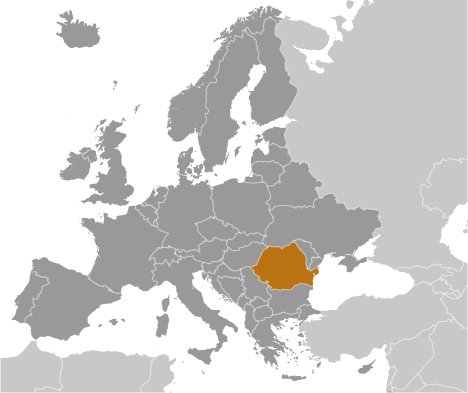HISTORICAL BACKGROUND
Article 31 of the Constitution guarantees the right of the public to access information of a public interest:
A person's right of access to any information of public interest cannot be restricted. The public authorities, according to their competence, shall be bound to provide for correct information to citizens on public affairs and matters of personal interest. The right to information shall not be prejudicial to the protection of the young or to national security.(1)
The Law Regarding Free Access to Information of Public Interest was approved in October 2001.(2) The implementing regulations of the law state, "free and unrestrained access to information of public interest shall be the rule and limitation of access shall be the exemption."(3) It allows for any person to ask for information from public authorities and state companies. The authorities must respond in 10 days.
There are exemptions for national security, public safety and public order, deliberations of authorities, commercial or financial interests, personal information, proceedings during criminal or disciplinary investigations, judicial proceedings, and information "prejudicial to the measures of protecting the youth."
Those denied can appeal to the agency concerned or to a court. Public employees can be disciplined for refusing to disclose information. The People's Advocate (Ombudsman) can also hear complaints and make recommendations.(4) In 2004, the office received 403 complaints related to the denial of information.(5)
Authorities must also publish a wide variety of basic information about their structures and activities including their register of "documents in the public interest." They are required to set up specialized divisions to deal with the Act.
According to the Agency for Government Strategies, there were over 710,000 requests (mostly oral) in 2005. Two percent of the requests were denied which resulted in 1846 administrative appeals (down from 6,154 in 2004). 55 percent of the appeals resulted in the decision being overturned, 33 percent were rejected and 11 percent were settled. There were 424 (up from 394) court cases.(6)
The Institute for Public Policies describes access by NGOs to information as "very difficult" citing misuse of classification to hide categories of information, excessive fees and refusing to provide information in the forms requested.(7) The Association for the Defense of Human Rights in Romania-Helsinki Committee (APADOR-CH) reported that most public institutions respond to requests, although there are still problems with complex or "delicate" requests. There are also ongoing problems with agencies charging excessive copying fees. This is significantly better than the 2003 report where they stated that "In practice, the access to information of public interest is denied and the law is inoperative."
APADOR has also made a detailed list of recommended changes needed to the Act and other related laws to improve access. Those changes include modifying the Ministry of Information, giving the FOI law primary effect over other laws, limiting exemptions, and revising the Classified Information, Archive and Data Protection Acts.(8)
The Law on Protecting Classified Information was enacted in April 2002 following pressure from NATO to adopt a law before Romania could join the alliance.(9) There was considerable controversy over the adoption of the law, amid claims that the government was misleading the Parliament on the NATO requirements (which are not public) to extend the scope of the law beyond what was required. One particularly controversial provision creates a level of classification called "office secret", which is defined as any information that could affect the interest of a legal person, be it private or state owned, which cannot be appealed. The Office of the National Registry of State Secret Information keeps the registers of secret information. The National Authority for Security maintains the controls on NATO information. The Criminal Code prohibits the possession of classified information by those not authorized to have it.(10) Two journalists were charged in February 2006 for illegally receiving classified information. The Supreme Court ordered the release of one who was detained for several days.(11)
The 1999 Law on the Access to the Personal File and the Disclosure of the Securitate as a Political Police allows Romanian citizens to access their Securitate (the former secret police) files.(12) It also allows public access to the files of those aspiring for public office and other information relating to the activities of the Securitate. The law set up the National Council for the Search of Security Archives (CNSAS) to administer the archives. The Council's activities were limited for years as the Romanian Intelligence Service (SRI) refused to hand over the files of its predecessor. A reported 12 kilometers of files were transferred to the Council in 2005 following a presidential order but many remain in the hands of the SRI which claims that they would harm national security if released.(13) The Council has also been hampered by regular crises over its leadership, some leading to mass public protests, and claims of misuse of files. The new head of the Council said in April 2006 that many of the Securitate files were destroyed in 1989 and called on the SRI to hand over all remaining files.(14) The Prime Minister also called for the release of all of the Communist-era files. The European Court of Human Rights ruled in 2000 that the Romanian Intelligence Service retention and use of Securitate files that falsely accused a person of being a member of a fascist party fifty years before was a violation of the ECHR.(15)
The Law on Decisional Transparency in Public Administration was approved in December 2002 and went into effect in April 2003. It requires meetings of government bodies to open, the disclosure of information about pending activities, and requires the bodies to invite citizens to participate in decisions.(16) According the Agency for Government Strategies, there were 8769 requests for information on draft laws and 7140 recommendations received, of which 64 percent were included in the draft acts. There were 131 cases brought in court against violations of the law in 2005, nearly 30 percent of which resulted in decisions for the individual and 31 percent for the government body. The Agency expressed concern that the low numbers indicated a "low level of civic involvement" but did note an eleven percent increase in recommendations from civil society groups.
The Law on Certain Steps for Assuring Transparency in Performing High Official Positions, Public and Business Positions, for Prevention and Sanctioning the Corruption was approved in 2003. It includes sections requiring that access to electronic information and government is improved through the creation of a "National Computerized System" and the names of tax delinquents are published.(17)
The Law on Protection of Persons concerning the Processing of Personal Data and the Free Circulation of Such Data allows individuals to access and correct personal information held by public or private bodies.(18) It is enforced by the National Authority for the Supervision of Personal Data Processing which was created in 2005.(19)
The Law on National Archives sets rules on access to information in archives. Information can be withheld for up to 100 years.(20)
Romania signed the Aarhus Convention in June 1998 and ratified it in July 2000. Governmental Decision no. 878/2005 on public access to environmental information implements EU Directive 2003/4/EC and sets rules on access.(21)
2004 freedominfo.org Global Survey Results - Romania
NOTES
Constitution of Romania. http://www.senat.ro/ENGLEZA/constitution.html
The Law Regarding the Free Access to the Information of Public Interest. http://www.publicinfo.ro/INITIAT/Legea%20accesului%20engl.pdf
Decision on Methodological Norms of Putting into Force Law No. 544/2001 on Free Access to Information of Public Interest.
Homepage: http://www.avp.ro/indexen.html
Annual Report 2004.
Agency for Government Strategies, Report concerning the applying of Law no. 544/2001 concerning the access at the public interest information during year 2005.
The Institute for Public Policies, Facts and flaws facing NGOs when confronted with public institutions refusing to grant free access to public interest information, 9 February 2006.
See APADOR, Limits of Access to Information in Romania - The Necessity of Certain Legislative Correlations.
Law no. 182 of 12 April 2002 on the protection of classified information. Published in the Official Gazette, Part I no. 248 of 12 April 2002. See Government of Romania, Agenda of Preparations for NATO Membership: Progress and Priorities - Midterm Review. http://domino.kappa.ro/mae/home.nsf/Toate/nato/$File/annex24.html
Criminal Code § 169.
IFEX, One journalist indicted, another freed on secrets charge, 23 February 2006.
Law No. 189 of 7 December 1999 on the access to the personal file and the disclosure of the Securitate as a political police, http://www.cdep.ro/legislatie/eng/vol44eng.pdf. See Ioana Borza, Decommunization in Romania: A Case Study of the State Security Files Access Law http://www.polito.ubbcluj.ro/EAST/East6/borza.htm
Homepage: http://www.cnsas.ro/main.html
CNSAS head: Intelligence Services control Securitate files, Bucharest Daily News, 14 April 2005.
Rotaru v Romania (App no 28341/95), 8 BHRC 449, 4 May 2000.
Law no.52 of 21 January 2003 regarding the decisional transparency in the public administration. http://www.transparency.ro/doc/ghid_transparenta_eng.pdf
Law on Certain Steps for Assuring Transparency in Performing High Official Positions, Public and Business Positions, for Prevention and Sanctioning the Corruption. http://www.sigmaweb.org/dataoecd/34/15/35015795.pdf
Law no. 677/2001 for the Protection of Persons concerning the Processing of Personal Data and Free Circulation of Such Data. http://www.avp.ro/leg677en.html
Homepage: http://www.dataprotection.ro/index.php
Law no. 16/1996 on the National Archives. http://www.apador.org/en/legi/lege_16_1996_e.rtf
Governmental Decision no. 878/2005 on public access to environmental information, 28 July 2005 replacing Resolution no. 1115/2002 of 10 October 2002 regarding the free access to the information regarding the environment. http://www.apador.org/en/legi/hot_1115_2002_e.rtf





















